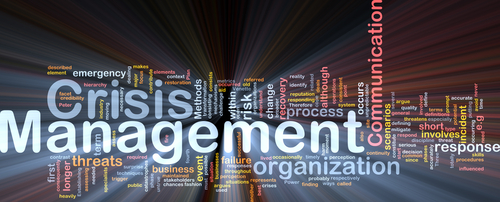


7 Questions to Ask Before Hiring a Crisis Communications Firm
By Bruce Hennes, Hennes Communications
This article first appeared in the National Law Journal
– Wikipedia
Over the last 20 years, we’ve learned five great lessons about crisis communications:
- Crisis communications is very much different from “regular” public relations. Quite often, the advice we give is counter-intuitive to the traditional practice of PR.
- The ubiquity and speed of the internet has changed everything. It’s more than likely your bad news is going to break on social media, not on TV or in tomorrow’s newspaper. Today, rapid, accurate communications are critical to your crisis response.
- You can’t learn crisis communications (along with sister sub-specialties crisis management, risk management, risk communications and issues management) from books, blogs or from relatively minor scrapes with small problems. Proficiency in these specialties comes from having had previous careers in corporate communications, television news, traditional journalism, digital platforms and political campaigns, along with constant cross-training with other team members, combined with facing hair-on-fire situations with clients day after day. Malcolm Gladwell’s 10,000 hours to proficiency rule isn’t terribly far off the mark.
- More often than not, we’re not just helping people figure out what to say, but instead helping them figure out what to do. A general rule of thumb: more often than not, you’ll be punished not for what you did, but for what you did after it happened.
- There must always be someone in the room willing to speak truth to power. And if it’s truly a crisis situation, you can be sure there will be attorneys present who too-often insist on saying “no comment,” focused narrowly on winning in trial, even though 97% of all cases filed in court never go to trial.
Another thing we’ve noticed, especially over the last few years, is the sheer number of PR firms now claiming to offer crisis communications services. If a PR agency is already selling marketing plans, new product launches, social media management, brand building, employee engagement, investor relations and digital marketing, it’s a simple matter to add “crisis communications” as an agency specialty without having truly experienced professionals on staff to deliver that service.
The business model for most public relations firms is similar to that of law, accounting and architecture firms. The senior people bring the work in and push it down to less-experienced (and lower-paid) junior people. (By the way, that’s not the model you want when you’re facing a make-or-break crisis.) Certainly, there are exceptions to this. The largest PR firms in the country have dedicated crisis comm units dealing with a steady stream of crisis situations, continually honing their expertise. But for most PR firms, real crisis work is usually a very small percentage of their total billable hours. That means there’s little opportunity for the team to build the expertise crisis situations require.
So, if every PR firm claims to offer crisis communications, how do you make sure the firm you’re calling isn’t overstating its abilities? One place to start is with these seven questions:
For the rest, click here.